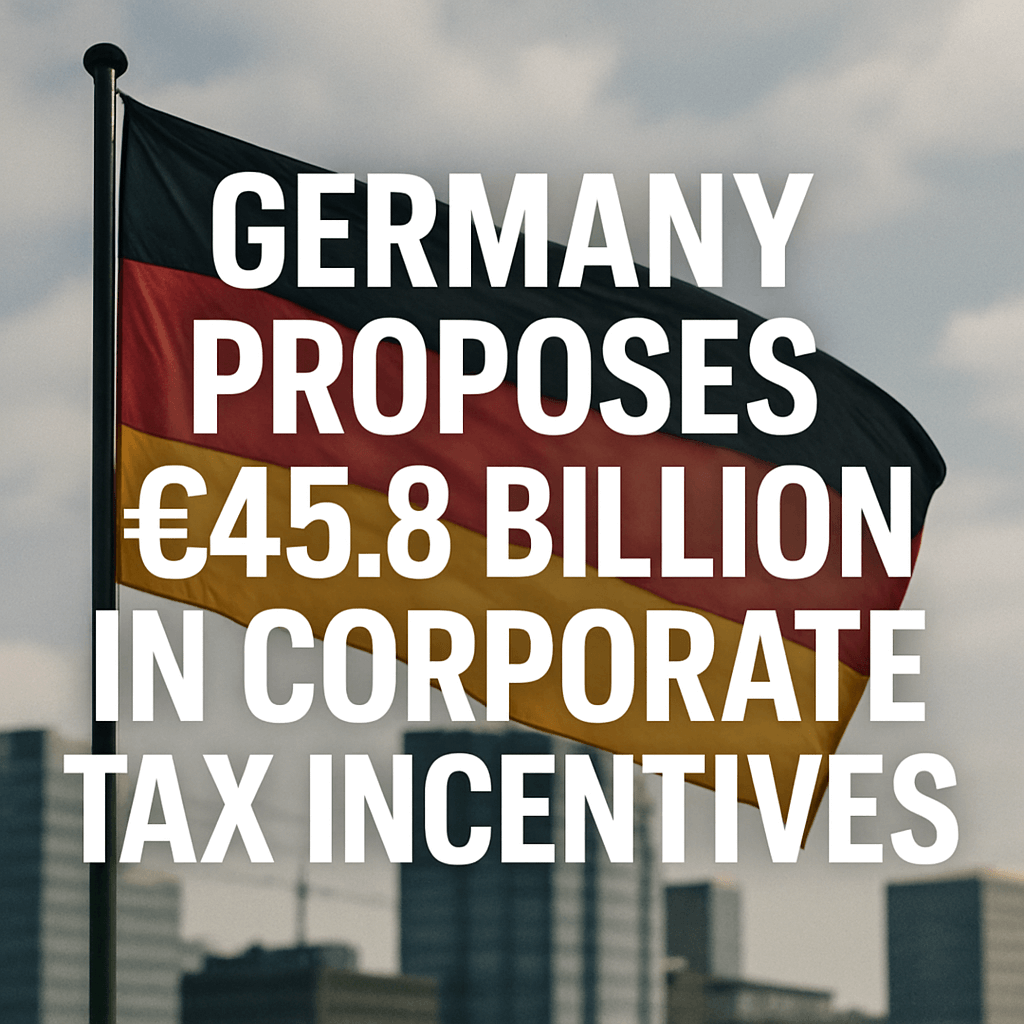Germany Proposes €45.8 Billion in Corporate Tax Incentives

On Wednesday, the German government introduced a comprehensive package of corporate tax breaks valued at a total of €45.8 billion (approximately $52.2 billion), aiming to stimulate investment and revitalize Europe’s largest economy, which has shown signs of stagnation in recent years. Finance Minister Lars Klingbeil emphasized the initiative’s significance during a press conference, stating, “It’s important to send a clear signal in support of our country’s economic strength and competitiveness.”
Key Components of the Tax Reform
The proposed tax package includes several key changes designed to encourage business investment:
- Reduction in Corporate Tax Rate: The corporate tax rate is set to decrease by 1% annually beginning in 2028, targeting a gradual reduction to 10% from the current rate of 15%.
- Investment Deductions: From 2025 to 2027, companies will be allowed to deduct 30% of expenses associated with new machinery and equipment. This is expected to incentivize capital investment in technology and production efficiency.
- Favorable Treatment for Electric Company Cars: In a move to promote sustainability, electric vehicles used for business purposes will receive preferential tax status.
Government Reactions and Economic Context
Chancellor Friedrich Merz’s conservative government perceives these tax reforms as critical to reviving Germany’s economic landscape, particularly in light of increasing production costs, stiff competition from China, and ongoing global trade tensions. Economy Minister Katherina Reiche remarked, “Germany is back. Today’s cabinet decision means we are going for growth and increased competitiveness, and more measures will come.” This assertive sentiment reflects a strategic shift to counteract the economic challenges facing the nation.
Infrastructure Investments: A Broader Strategy
Complementing the tax incentives, the German government has laid out a robust €500 billion infrastructure fund aimed at modernizing the country’s transport, energy, and digital infrastructure. This initiative is part of a broader strategy to bolster growth but highlights the importance of structural reforms alongside financial incentives.
Challenges Ahead
Despite the optimistic projections from government officials, analysts caution that these fiscal measures alone may not be sufficient to reignite comprehensive economic growth. In an analysis, Deutsche Bank economist Robin Winkler stated that while the proposed deductions would provide a much-needed short-term boost for the manufacturing sector, their effectiveness in fostering deeper structural transformation within the German economy may be limited. He commented, “This does not represent a silver bullet for the challenges we face. Structural reforms are crucial for enduring progress.”
Concerns from Regional Governments
Some regional governments have expressed reservations about the fiscal implications of the tax breaks, predicting a significant shortfall in revenue. Anke Rehlinger, the leader of Saarland, articulated concern over the localized impact of these national tax cuts: “These billions in investments will go up in smoke if the states and municipalities see holes in their core budgets.” Analysts expect that local governments could face a loss of €28 billion in revenue between 2025 and 2029, raising questions about the sustainability of local finance amidst these nationwide reforms.
Conclusion
Germany’s ambitious €45.8 billion tax incentive proposal reflects a proactive governmental response to a stagnating economy. However, the success of this initiative will depend not only on the swift passage of these reforms through parliament but also on additional structural improvements. The interplay between local and national fiscal policies will be crucial to ensure that the projected benefits materialize without undermining the fiscal stability of regional governments.